Affiliate links on Android Authority may earn us a commission. Learn more.
Qualcomm Snapdragon 8cx finally bridges the gap between mobile and laptops (Video)
Published onDecember 6, 2018
Along with its brand new Snapdragon 855 smartphone platform, Qualcomm unveiled its latest product for the laptop market: the Snapdragon 8cx. During the announcement in Maui, Qualcomm dubbed the 8cx its “most extreme” package yet, promising a major boost to Windows performance, something Arm laptops have sorely needed.
Key talking points for the new platform include enhanced AI and machine learning capabilities, beefed up graphics performance, and even faster integrated LTE support, with the option to support 5G too. The name might be a bit daft, but this is a serious chip when it comes to performance.
A laptop-first chip design
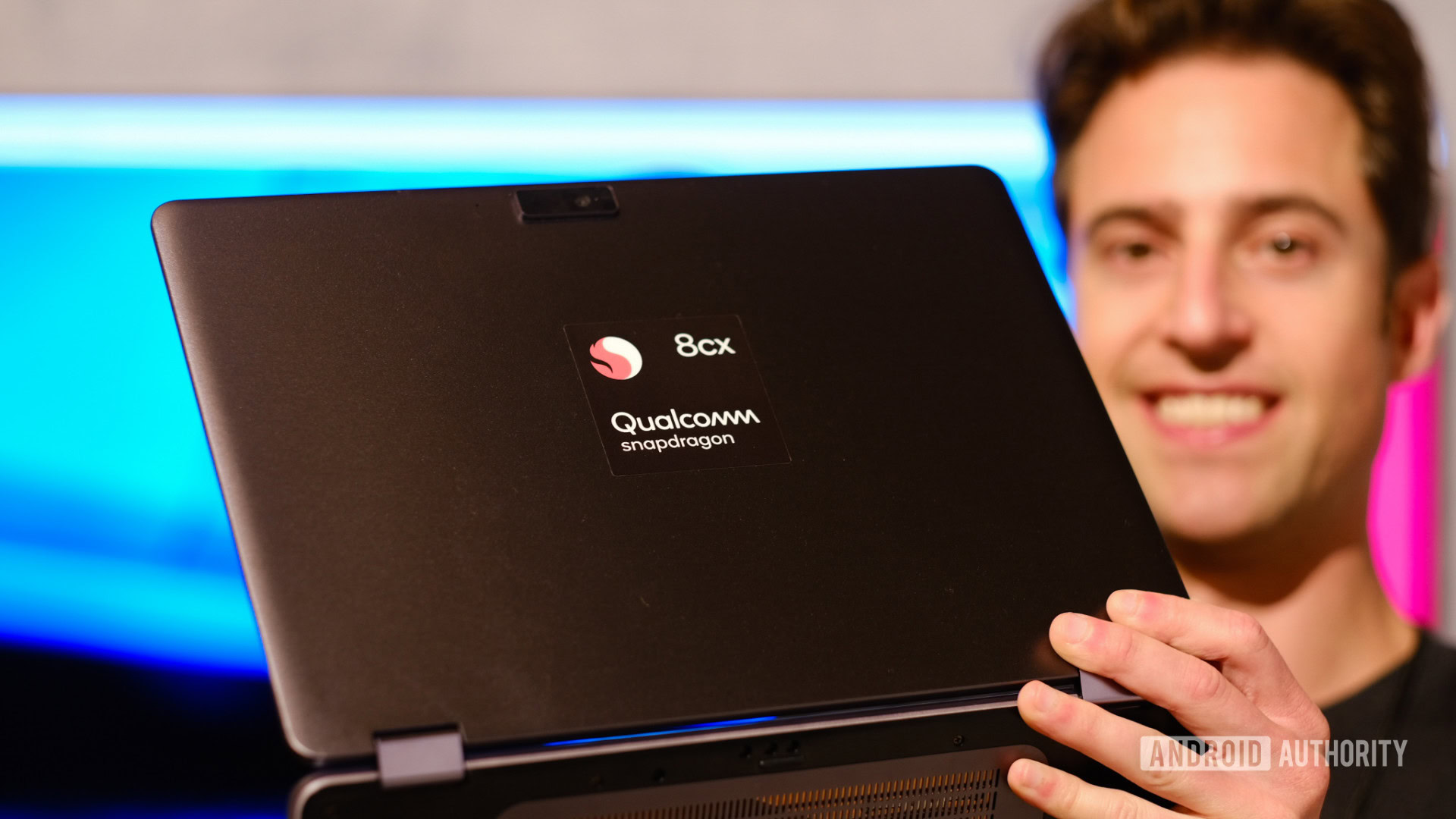
At long last, the Snapdragon 8cx is a dedicated design for the PC market, rather than a tweaked smartphone chip. Its design is much better suited to the higher performance requirements of laptop consumers and may finally be able to give competing chips a run for their money. You need only look at the major CPU and GPU differences to the new Snapdragon 855, targeted for smartphones, to understand the types of considerations Qualcomm made for the 8cx.
| Snapdragon 8cx | Snapdragon 850 | Snapdragon 835 | |
|---|---|---|---|
CPU Core | Snapdragon 8cx Semi-custom ARM Cortex - Kryo 495 | Snapdragon 850 Semi-custom ARM Cortex - Kryo 385 | Snapdragon 835 Semi-custom ARM Cortex - Kryo 280 |
CPU Config | Snapdragon 8cx 4x (Cortex-A76) 4x (Cortex-A55) | Snapdragon 850 4x 2.96GHz (Cortex-A75) 4x 1.7GHz (Cortex-A55) | Snapdragon 835 4x 2.45GHz (Cortex-A73) 4x 1.9GHz (Cortex-A53) |
GPU | Snapdragon 8cx Adreno 680 Extreme | Snapdragon 850 Adreno 630 | Snapdragon 835 Adreno 540 |
DSP | Snapdragon 8cx Hexagon 690 | Snapdragon 850 Hexagon 685 with HVX | Snapdragon 835 Hexagon 682 with HVX |
RAM | Snapdragon 8cx 16GB LPDDR4x | Snapdragon 850 8GB LPDDR4x | Snapdragon 835 8GB LPDDR4x |
Storage | Snapdragon 8cx UFS 3.0, NVME SSD | Snapdragon 850 UFS 2.1 | Snapdragon 835 UFS 2.1 |
Process | Snapdragon 8cx 7nm FinFET | Snapdragon 850 10nm LPP FinFET | Snapdragon 835 10nm LPE FinFET |
Display | Snapdragon 8cx up to 4K 60fps dual display | Snapdragon 850 up to 4K 60fps | Snapdragon 835 up to 4K 60fps |
Camera support | Snapdragon 8cx 32MP single / 16MP dual Hybrid AF, HDR video. multi-frame noise reduction | Snapdragon 850 32MP single / 16MP dual Hybrid AF, HDR video. multi-frame noise reduction | Snapdragon 835 32MP single / 16MP dual Hybrid AF, HDR video |
Video capture | Snapdragon 8cx 4K UHD, HDR @ 30fps | Snapdragon 850 4K UHD @ 30fps | Snapdragon 835 4K UHD @ 30fps |
Video playback | Snapdragon 8cx 360 degree, 4K up to 120fps, 10-bit, H.265 and VP9 video decode | Snapdragon 850 4K UHD @ 60fps, 10-bit H.264 (AVC) and H.265 (HEVC) | Snapdragon 835 4K UHD @ 60fps, 10-bit H.264 (AVC) and H.265 (HEVC) |
Charging | Snapdragon 8cx Quick Charge 4+ | Snapdragon 850 Quick Charge 4+ | Snapdragon 835 Quick Charge 4.0 |
Wireless | Snapdragon 8cx Wi-Fi 802.11a/b/g/n/ac/ad 2.4, 5, and 60GHz Bluetooth 5.0 | Snapdragon 850 Wi-Fi 802.11a/b/g/n/ac/ad 2.4, 5, and 60GHz Bluetooth 5.0 | Snapdragon 835 Wi-Fi 802.11a/b/g/n/ac/ad 2.4, 5, and 60GHz Bluetooth 5.0 |
Modem | Snapdragon 8cx x24 LTE 2000Mbps down 316Mbps up | Snapdragon 850 x20 LTE 1200Mbps down 150Mbps up | Snapdragon 835 X16 LTE 1000Mbps down 150Mbps up |
The Snapdragon 8cx packs in a new Adreno 680 Extreme, a notable step up over the Adreno 640 inside the new Snapdragon 855 and Adreno 630 inside the Snapdragon 850. The new GPU boasts twice as many transistors and twice the available bandwidth as previous generations, which should provide a notable boost to gaming performance.
The Adreno 680 Extreme boasts twice as many transistors as Qualcomm's last-gen GPU.
Qualcomm says the Adreno 680 Extreme is twice as fast as the Adreno 630 and 3.5x more powerful than the Adreno 540. It’s also 60 percent more efficient than the Snapdragon 850, meaning longer gaming time and video playback than previous generation products.
The 8cx’s CPU configuration is also notably different to the Snapdragon 855. It’s still an octa-core design but boasts four big and four little cores for superior peak multi-threaded performance versus the big, mid, little tier design of Qualcomm’s latest smartphone chip. The Snapdragon 8cx also boasts more cache memory. There’s 10MB in total, compared to 5MB inside the Snapdragon 855. The overall result is more CPU horsepower than even the latest smartphone processors.
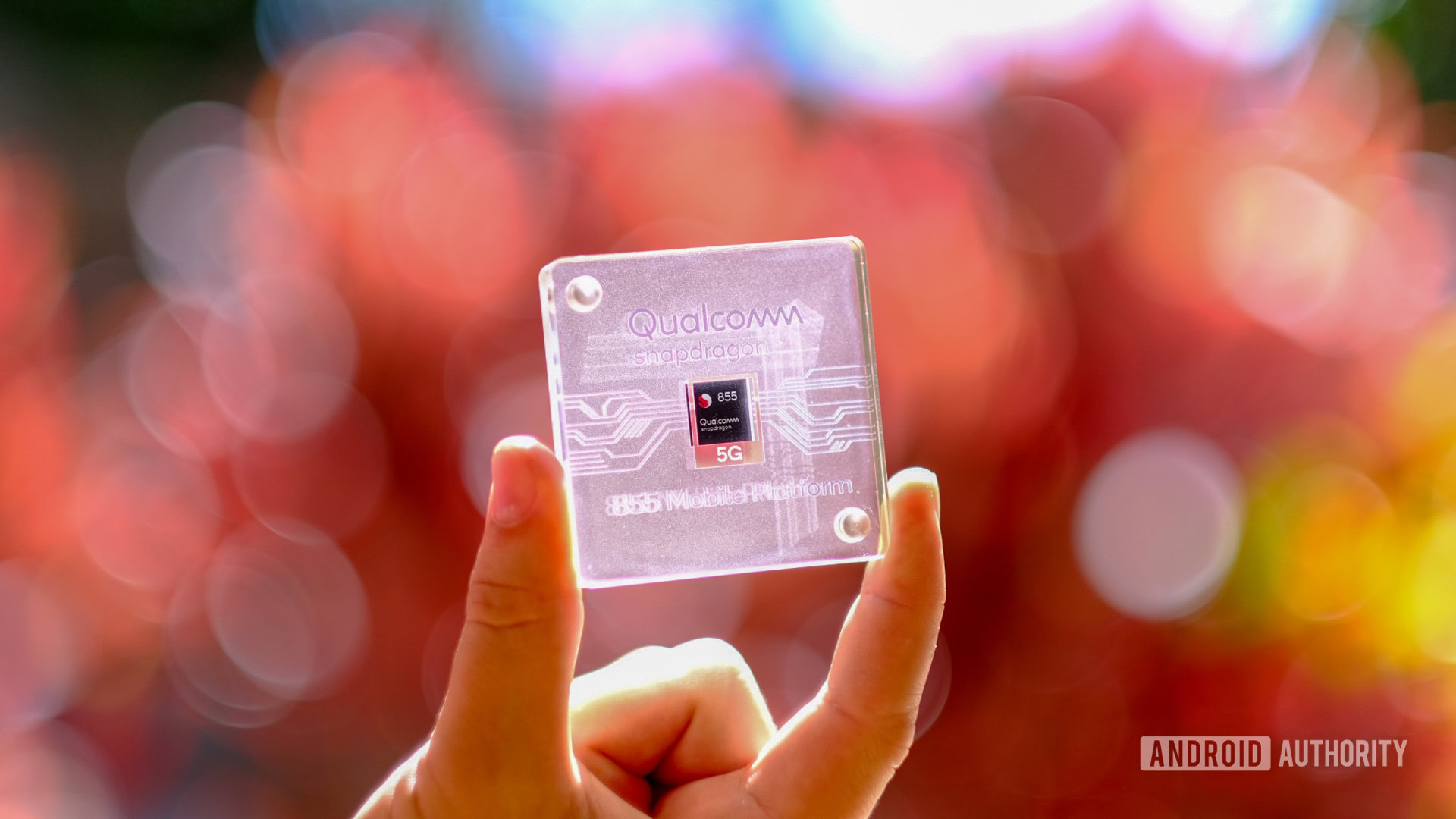
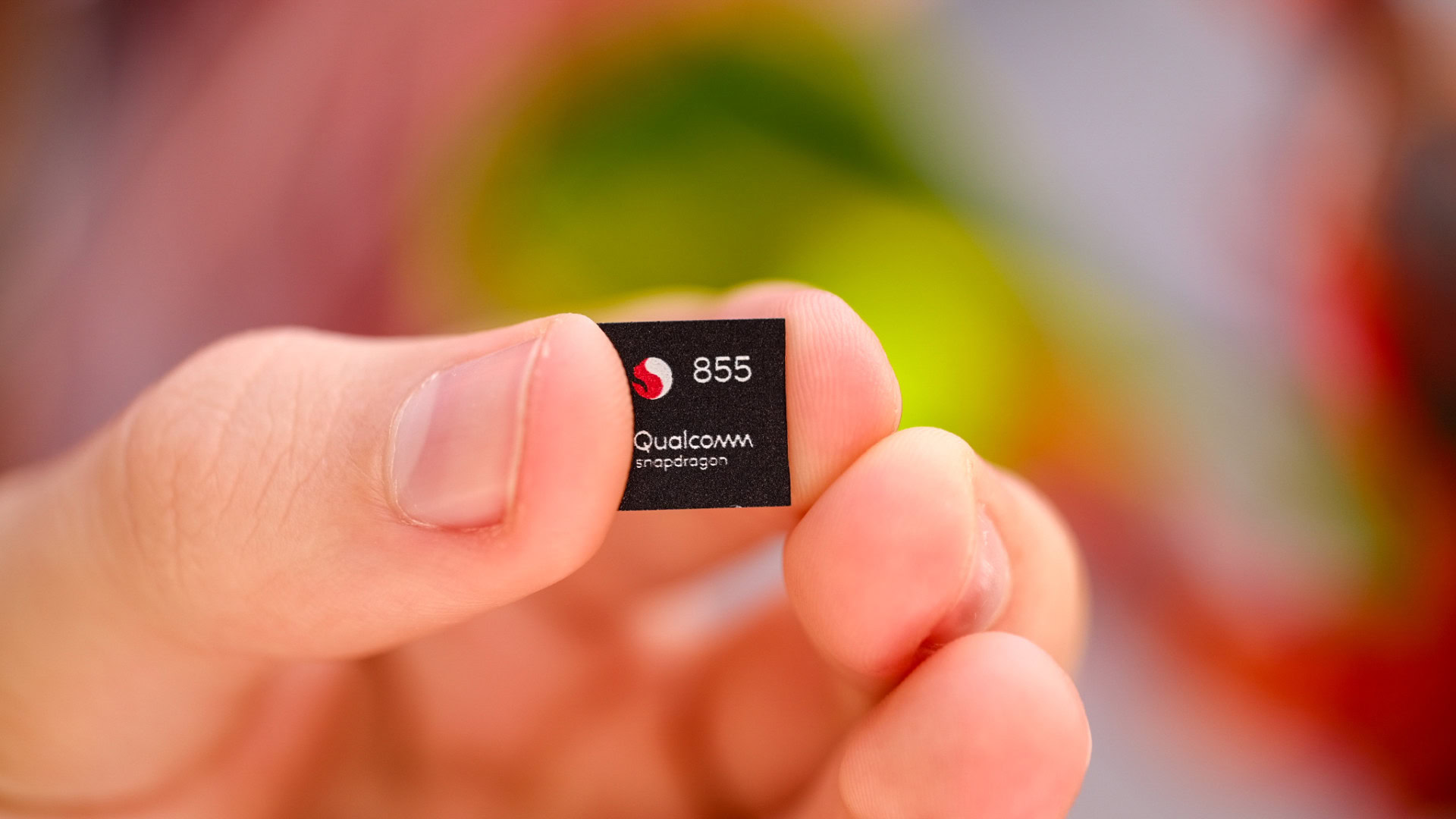
Bigger, more cache rich Cortex-A76 cores means higher peak performance. Part of Arm’s design philosophy with this generation was to allow for scalable performance between smartphones and laptops, partly by configuring cache size. In fact, Qualcomm reckons it can rival an Intel U series chip for performance with substantially lower power consumption. The Snapdragon 8cx gets away with a bigger, more powerful CPU due to the fewer thermal, energy, and silicon size constraints of the laptop form factor.
Performance breaks free from smartphone restraints, finally rivaling mainstream laptop components
The Snapdragon 8cx also supports up to 16GB of LPDDR4x RAM over eight channels, up from 8GB with previous generation products. Perhaps just as important for the Snapdragon 8cx is support for not only faster UFS 3.0 flash memory, up from UFS 2.1, but also NVME storage — in other words, the SSD drives that are a mainstay of the PC market. This means fast, large storage drives can be packaged into Windows on Arm laptops, which will please heavy media consumers and the enterprise market. There’s support for USB 3.1 data speeds and accessories, along with 4 PCI-Express lands that can be exposed for connecting up audio and other peripherals.
Adding value to the laptop market
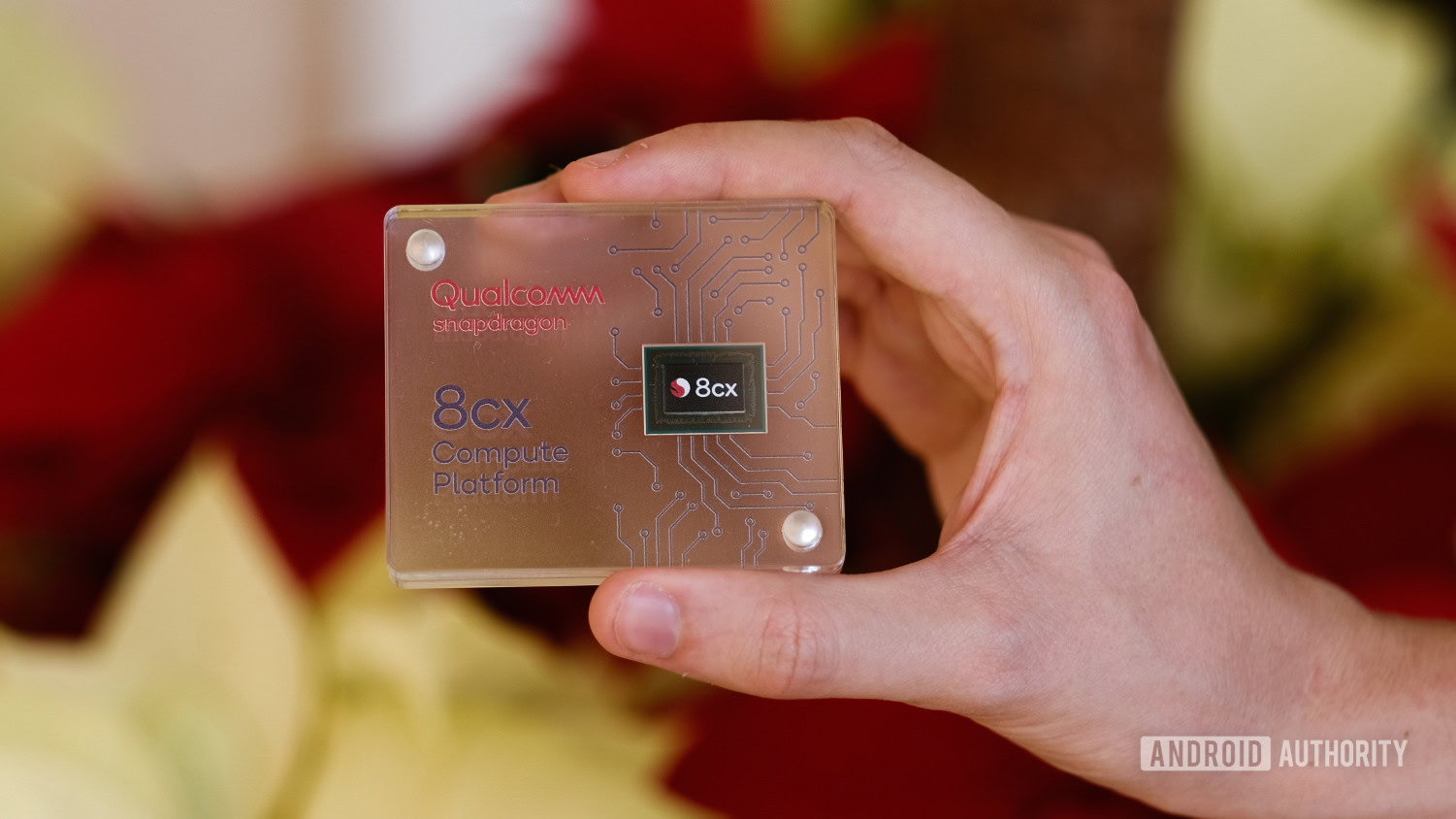
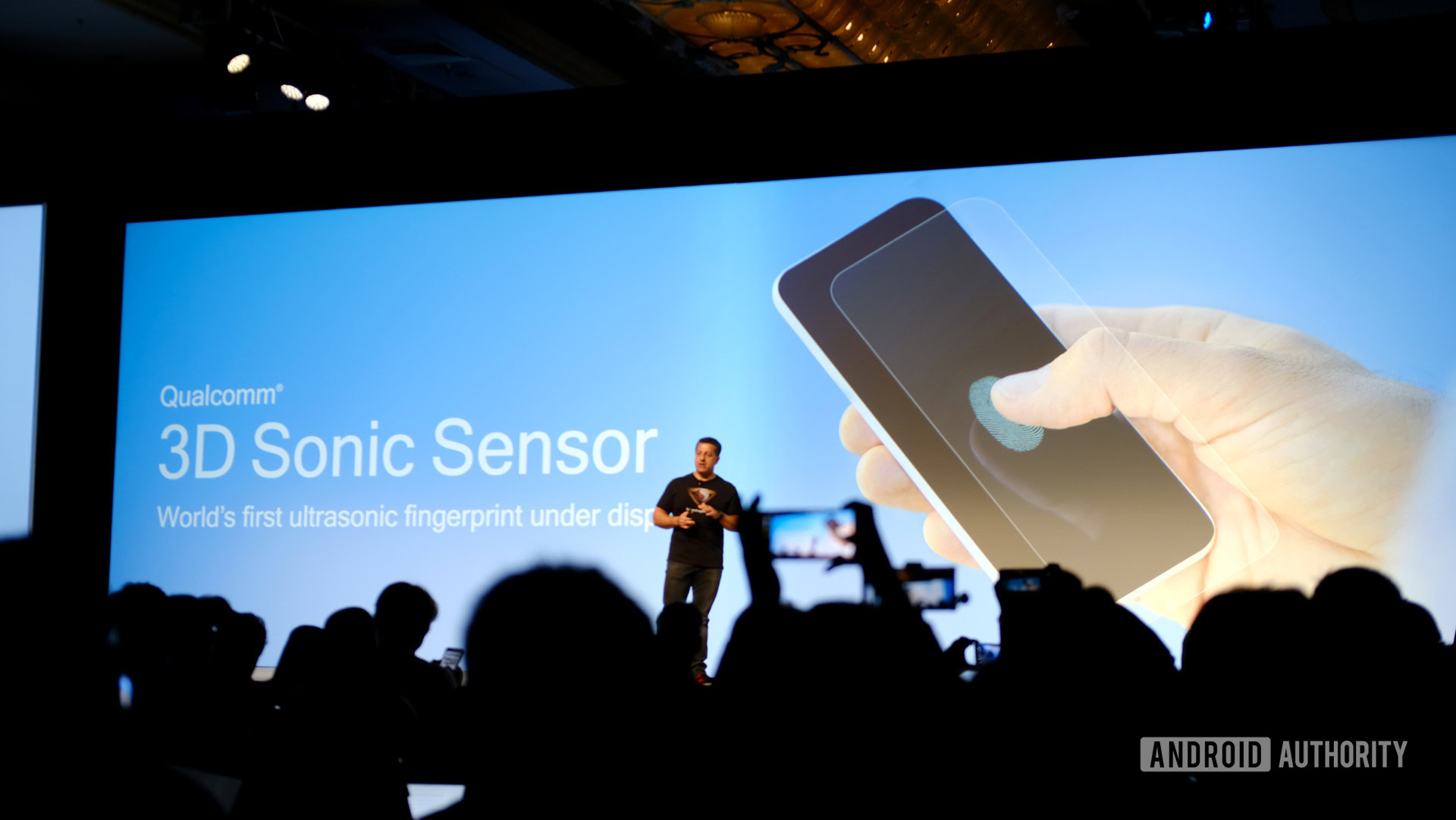
Even the new Snapdragon 8cx won’t trouble the highest performing x86 based processors in the laptop space. This chip is targeted at the mainstream consumer segment of the market, where the 8cx should now rival its competitors’ performance. However, performance isn’t everything, and Qualcomm is packing in plenty of extra features to sway manufacturers over to its chipset.
Integrated LTE connectivity remains one of Qualcomm’s key selling points. The Snapdragon 8cx incorporates Qualcomm’s latest X24 LTE modem, which boasts 2Gbps download speeds and 316Mbps upload. While max speeds aren’t really the main point of this modem, the larger number of aggregate carriers should ensure better connection quality at the cell edge and in densely populated areas.
Multi-day battery life and LTE connectivity remain key selling points for Qualcomm's laptop SoC
The 8cx also brings over a host of other features that mobile users will be very familiar with. Qualcomm’s Aqstic audio codec, complete with aptX HD Bluetooth support, noise cancellation, speaker amplifier, and low power microphone technologies supporting Amazon Alexa and Cortana voice assistants. On top of assistants, the Hexagon 690 means support for AI and machine learning applications like facial recognition is in place too.
There’s also a VP9 and H.265 hardware decoder on board, which means longer battery life when playing back high-quality movies. And of course, the extra graphics power of the Adreno 680 Extreme means basic gaming is catered for too, or you can run up to dual 4K monitors for a massive desktop environment. Multimedia consumers are well covered. There’s also Quick Charge 4+ technology, which plays nicely with USB Power Delivery, so laptops powered by the Snapdragon 8cx can charge up quickly over a USB Type-C port.
Will the Snapdragon 8cx be inside your next laptop?
The Qualcomm Snapdragon 8cx is the company’s first ground-up PC platform, and it’s certainly got some major improvements over the 850. The bigger GPU will help drive higher resolution displays and offer a better gaming experience. The tailored CPU design means a cleaner break with the limitations of mobile performance. And perhaps best of all, the chipset continues to bring voice assistant, multimedia, LTE wireless networking, and more to the PC market.
There are still some app compatibility performance issues with Windows on Arm, but this is an ever-improving situation. For example, users can now choose between Edge and Firefox for their native web browser, and Chromium support is being worked on. The platform’s improved performance means instances where emulation is required should perform much better than before, too. Oh, and a 7nm, heavily integrated chip offers substantially better battery life than the competition.
Despite the improvements, Qualcomm states the Snapdragon 8cx isn’t replacing the 850. Instead, the two will exist side-by-side as premium and regular tier options respectively. However, I think you’ll prefer the Snapdragon 8cx inside your next LTE-equipped laptop.
Next: Qualcomm Snapdragon 855 vs Samsung Exynos 9810 vs HUAWEI Kirin 980